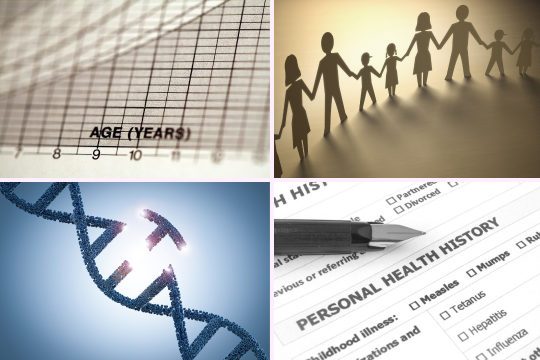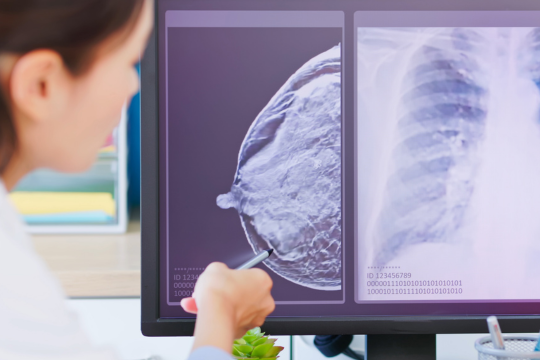Breast cancer is a significant health concern, as it remains the most common cancer among women globally. In 2024, an estimated 310,720 new cases of invasive breast cancer are expected in the U.S. alone. Early detection and awareness are crucial in improving outcomes and saving lives. This article covers the key aspects of breast cancer, including symptoms, risk factors, and the importance of screening.
What Is Breast Cancer?
Breast cancer occurs when cells in the breast grow uncontrollably, forming a tumor that can be felt as a lump or seen on imaging. While it primarily affects women, men can also develop breast cancer, though cases are rare. The disease can spread to other parts of the body if not detected and treated early.
Symptoms of Breast Cancer
Being aware of breast cancer symptoms can help you recognize potential issues early. Common signs include:
- A lump or thickening in the breast or underarm.
- Changes in the size, shape, or appearance of the breast.
- Dimpling or puckering of the skin on the breast.
- Nipple discharge, especially if bloody or clear.
- Redness or scaling on the nipple or breast skin.
- Persistent pain in the breast or nipple area.
It’s important to note that not all lumps are cancerous, but any changes should be evaluated by a healthcare provider promptly.
Risk Factors for Breast Cancer
While anyone can develop breast cancer, certain factors can increase your risk:
Unchangeable Risk Factors

- Age: The risk increases as you age, with most cases diagnosed in women over 50.
- Family History: Having a close relative with breast or ovarian cancer can elevate your risk.
- Genetic Mutations: BRCA1 and BRCA2 gene mutations significantly increase the likelihood of breast cancer.
- Personal History: A previous diagnosis of breast cancer or certain non-cancerous breast conditions raises the risk.
Lifestyle-Related Risk Factors

- Alcohol Consumption: Even moderate drinking can slightly increase your risk.
- Obesity: Postmenopausal women with higher body weight face greater risk.
- Physical Inactivity: Regular exercise has been shown to lower breast cancer risk.
- Hormone Replacement Therapy (HRT): Certain types of HRT used during menopause can increase your chances of developing breast cancer.
While some risk factors are out of your control, adopting a healthy lifestyle can help reduce your overall risk.
The Importance of Screening and Early Detection
Regular breast cancer screening is one of the most effective ways to detect the disease early, when treatment is most successful. Key screening methods include:
1. Mammograms
Mammograms are X-ray images of the breast used to detect abnormalities. Women aged 40 and older should discuss the appropriate screening schedule with their doctor, as recommendations vary.
2. Clinical Breast Exams
Healthcare providers can perform clinical breast exams during routine check-ups to check for lumps or other unusual changes.
3. Self-Exams
While not a replacement for professional screenings, monthly breast self-exams can help you stay familiar with your breasts and detect any changes early.
Preventative Steps You Can Take
While it’s impossible to eliminate the risk of breast cancer, these steps may help lower your chances:
- Maintain a healthy weight.
- Exercise regularly—at least 150 minutes of moderate activity per week.
- Limit alcohol consumption.
- Consider breastfeeding, which may offer protective benefits.
- Discuss your risk factors with your doctor to create a personalized prevention plan.
When to Seek Medical Attention
If you notice any unusual changes in your breasts, schedule an appointment with a healthcare provider immediately. Early intervention is critical in addressing breast cancer effectively.
At the Women’s Center of Athens, we provide expert care and guidance for women’s health concerns, including breast cancer screenings and consultations. If you’re due for a mammogram or have questions about your risk, our board-certified physicians are here to help.
Your health is too important to wait. Contact the Women’s Center of Athens to schedule a breast exam or mammogram with one of our experienced OBGYN physicians. Let us partner with you in prioritizing your well-being.


